Sea Legs: Run The Jewels Live @ The Showbox [Seattle]
The rap super duo comprised of Brooklyn producer/mc EL-P and Atlanta Dungeon Family affiliate, Killer Mike bring their energy packed live show to Seattle
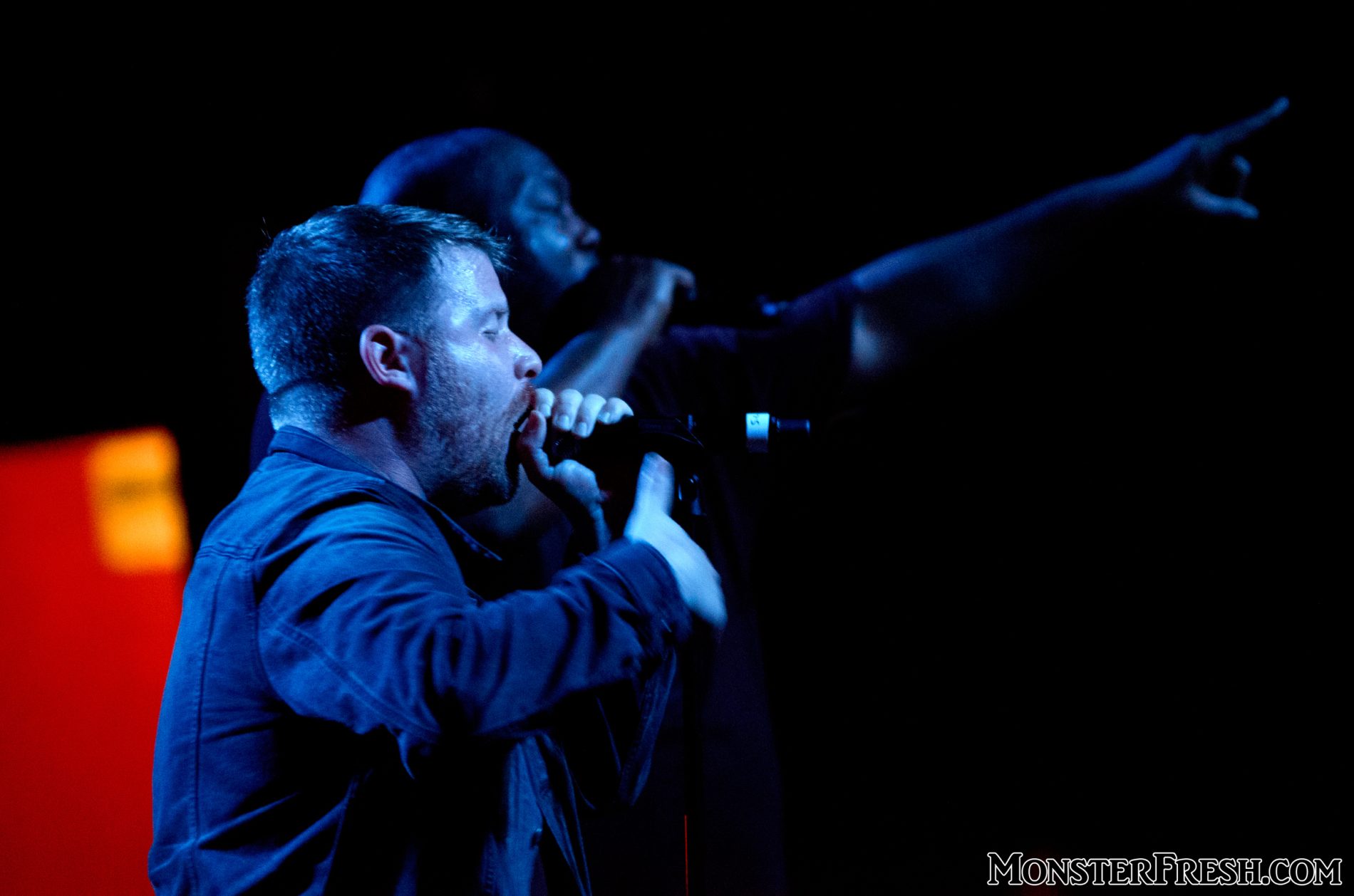
RUN THE JEWELS
w/ Kung Foo Grip
The Showbox
Seattle, Wa
8.09.2014
When it was first announced that emcee/super producer, Jaime “El-Producto” Meline was handling the production on a new album for Killer Mike, the news surprised some people. Meline is from Brooklyn, raised in an environment and era where the burgeoning hip hop movement surrounded him from all directions, seeping into every fiber of his being; his own personal development incubating among the resonating boom bap, as he witnessed b-boy battles first hand and traveled on freshly painted trains. EL even recalls memories of seeing Mike D wandering the halls of his school as a youth — although much older, the Beastie Boy and the future underground rap pioneer, attended the same institution. “Killer Mike“ Render, on the other hand, is as Southern as they come; the strip club aficionado has made regular appearances on tracks with fellow Atlanta staples like Outkast and T.I., as well as Bun B of Houston legends, UGK. But while, on a superficial level, New York and Southern rap might often be considered the antithesis of each other, neither Mike nor EL could ever be justifiably classified as one-dimensional, cookie-cutter artists. What Killer Mike‘s Meline-produced R.A.P. Music (May 2012), and his cameo on EL‘s own Cancer 4 Cure album (released exactly one week later) effectively demonstrated was what the two unlikely cohorts had in common: a respect for genuine, complex lyricism and the type of aggressive, heavy hitting production that has been far too absent from the rap game in recent years. Both albums also effectively landed themselves on multiple “best of 2012” year-end album lists. These projects gave us a glimpse into the tremendous potential that this pair of long-underappreciated artists from disparate backgrounds were capable of as a unit, and foreshadowed their first real full-on collaboration as an official duo, which later arrived under the moniker of Run The Jewels. Still, when their 33-minute, 10-track, self-titled debut was casually released as a free digital download in June of last year, the universal acclaim that RTJ received may have been the biggest surprise yet — if for no one else, then for the artists themselves.
Shortly after the release of their respective solo efforts, the new colleagues supported their individual projects by sharing the same bill as part of the Into The Wild Tour. With supporting acts, Mr Muthafuckin’ eXquire (also of Brooklyn) and Despot (former roster member of now-defunct, Meline-founded Definitive Jux records), and an illustrated flyer depicting all 4 rappers dressed as Max “King of the Wild Things,” the tour came stomping through Seattle‘s Neumos just like the characters from the classic Maurice Sendak childrens book that they were referencing. With the talent and energy being presented across the board, one knockout set after the other, it felt as if the overstuffed lineup was almost too big for the venue to contain it. Aside from shining on their own, they each made cameos in one another’s sets, with all 3 of the previous performers recreating their guest spots from C4C live during EL-P‘s headlining slot. As a huge fan of Producto‘s entire body of work, from his groundbreaking output as part of 90s underground doom-rap pioneers Company Flow up through now, the opportunity to finally catch him live was big for me and he didn’t disappoint. But although hearing his solo material was my aim, the connection that he shares with his new best pal was undeniable during the moments that he and Mike shared the spotlight together.
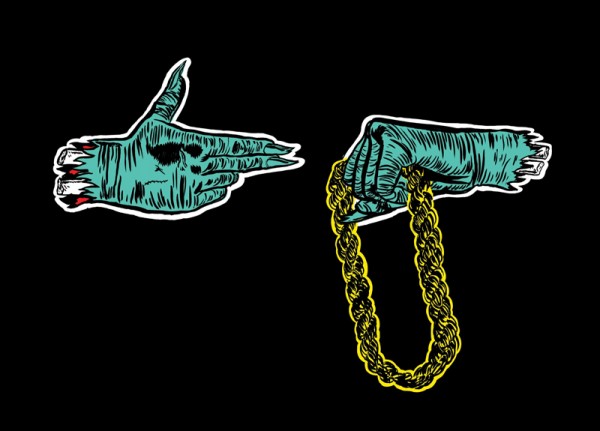
Run the Jewels have rolled through the general area a couple of times since their album dropped, but always as part of some festival like The Capital Hill Block Party or Sasquatch! (additional out-of-state fests have included Lollapalooza, MFNW, Outside Lands, and Pitchfork 2013). This month’s performance at Seattle‘s Showbox meant that they would finally be hitting the stage as the main draw, rather than a mid-day act/saving grace amid of bunch of shit that I had no interest in and a crowd that, quite possibly, didn’t have much interest in them either. The project has yielded some incredibly favorable responses overall, and I had the impression that they were even making a reasonable impact here in Seattle. But while the Showbox‘s capacity of 1,150 is nearly double that of the venue that hosted the Into The Wild Tour (Neumos is listed as holding 650), we arrived to a room that appeared to be half empty… on a Saturday night, no less. In fact, the more spacious of the two separate bar areas — a large open section located in the back of the club — had been completely closed off with a black curtain for the night.
I hadn’t seen any other acts listed on the website, or in any other promotion for the show. Although it probably wasn’t likely, I had hoped that there might be a chance of EL-P and Killer Mike filling out the time with a hefty amount of their own solo material, but that wasn’t the case. When we arrived, a group by the name of Kung Foo Grip was on the bill. I should probably preface the rest of this paragraph by stating that I could easily be considered what is often referred to as “a hater.” Despite the fact that I live in this city, I find Seattle‘s rap scene to be incredibly disappointing, and always have. The fact that this Run The Jewels show was so sparsely attended in a town where a questionable talent/local act like Macklemore, who’s been floating around forever with understandably little fanfare, can now sell out back-to-back nights at the 17,000 person capacity Key Arena in the town where he lives, is only one example about what people do and do not care about out here; what they will or will not support. To me, Seattle has always felt like a really weak hip hop town that believes that it’s a really great hip hop town, with that lack of awareness being one of the primary issues.
Kung Foo Grip
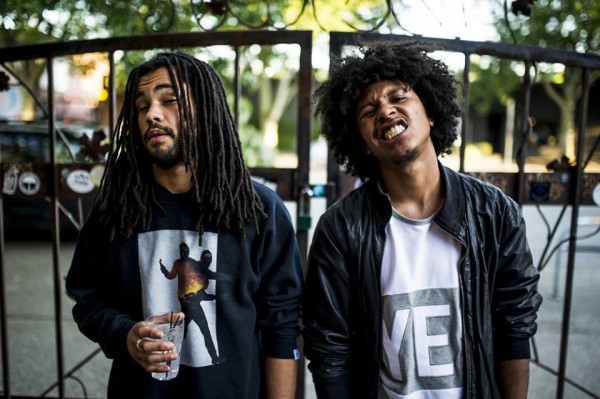
Sipping an over-priced Rolling Rock and looking down at what should have been a packed floor for the all-ages event, I considered bouncing to another spot to get a drink during what was almost guaranteed to be another depressing set by a local act — quite possibly some worthless “joke rap” outfit — trying way too fucking hard, only to miss the mark. Just then, my shame meter did something unexpected; it started creaking toward the other direction. These guys were actually pretty good. It even took a moment for it to register that what was coming from the stage was genuinely listenable and I could see the same surprise on the faces of the other 2 people who had come to the show with me. Although their facebook page only lists 2 official members (MC EFF is H and Greg Cypher), Kung Foo Grip had both a DJ and a third rapper holding a mic out there with them. From a superficial standpoint, the 3 separate profiles presented by their contrasting hairdos — dreads, a natural, and the more cleanly styled mane of the friend they had joining them — would have worked as an identifiable trio of silhouettes, if thrown on some bumper stickers and/or T-Shirts, for marketing purposes. Sound-wise, these kids seemed to draw some influence from classic golden age acts and, to their credit, it was clear that they possess some reference points that extend a little bit deeper than Atmosphere. Their beats didn’t sound completely played-out and their cadences were on point. And while I couldn’t make out all of the details in their verses, they definitely place importance on lyricism, taking notes from predecessors like The Pharcyde, KMD, and Das EFX who were able to avoid restricting their subject matter to such topics as shooting mother fuckers up and having thangz, while still avoiding coming across as heavy-handed, overly judgmental “conscious” rappers. The local crew remained identifiable and genuine; Greg Cypher lead into one track by mentioning that he had come to the show straight from his day job, asking the crowd how many of them hate the shit that they have to do to make a living (the answer was everyone).
KFG had the crowd on their side, only encountering one prominent misstep. It came toward the end of their set and involved them accessorizing themselves to resemble stereotypical “hippies” as a visual aid while unleashing a new track that, unfortunately, sounded like they were forcing themselves in the direction of Outkast, minus the authenticity. Even then, they set things back on course quickly and ended their time by expressing their honest appreciation for the opportunity to open up the show, mentioning what big fans they were of Company Flow and projects like Canibal Ox‘s EL-produced underground classic, Cold Vein. Kung Foo Grip‘s official facebook page gives credit to such lesser known influences as Organized Konfusion (the Queens duo that launched the career of Pharoah Monch) and Michigan‘s Binary Star. It never made any sense to me that only mediocre rappers content with following mediocre paths could exist in this city, and I have to give credit to KFG for demonstrating that, just because those might be the only examples that I’ve been exposed to, or are prominently promoted, it doesn’t mean that there isn’t something more out there, if you just make the effort to dig a little deeper… even in Seattle. It also appears that they’ve landed opening spots for other highly respectable crews like Souls of Mischief and Freestyle Fellowship, so it’s quite possible that I just need to start getting off of my ass and making it out more often. If I did, I probably would have come across these guys a lot sooner.
Run The Jewels

When Run The Jewels hit the stage, they did so with the energy that you’d expect from a team that put out something as brutally aggressive, yet tongue-in-cheek, as they managed with their debut release. The duo was amped the fuck up with an equal amount of unrestrained enthusiasm radiating out from each of them. They made note of the less than stellar turnout early on, expressing how their egos lead them to expect a sellout show in every town, but assured us that they were still going to attack the evening as hard as if every single ticket had been accounted for. After that, they proceeded to make good on that promise, only slowing down for the occasional breath or brief interaction with the audience before the next beat would punch through, jostling equilibriums like a swift roundhouse to the side of the skull.
Only a couple of tracks in and already dripping with sweat, EL-P stated that he didn’t know who was controlling the house lights but that he felt that it was a pretty “bold” move for them to keep the heat lights beaming straight onto his face. The fair-skinned emcee asked them if they could dial it back to a simple blue or red light and, to my dismay, they obliged — red light is death for concert photography. The interesting thing about this show was that, although the front of the stage was separated from the crowd by the barricades that are periodically brought in to create photo pits for select shows at the venue, none of the photographers were actually allowed into the area to shoot — I heard that it might have something to do with the liability involved if the massive Killer Mike decided to jump down into it. A rabid mob congregated up front, resting on the barricade while the ballistic assault of EL‘s production blasted them in the face, like a small village peering through the fenced-off perimeter of a nuclear testing site. A smaller crowd translates into a less diluted one; those who made the effort to show up were recognizably enthusiastic about it — it meant something to them. When the request was made for them to simulate the same gesture from the album art — zombie finger gun pointed at a clenched fist holding a chain — a sea of hands flew into the air responding accordingly. People were fucking hyped and Seattle isn’t a town that typically moves. As verse after verse and track after track was greeted by a chorus of attendees providing accompaniment, it worked to affirm how what RTJ had merely provided as a free download had so quickly mutated into a certifiable instant classic.
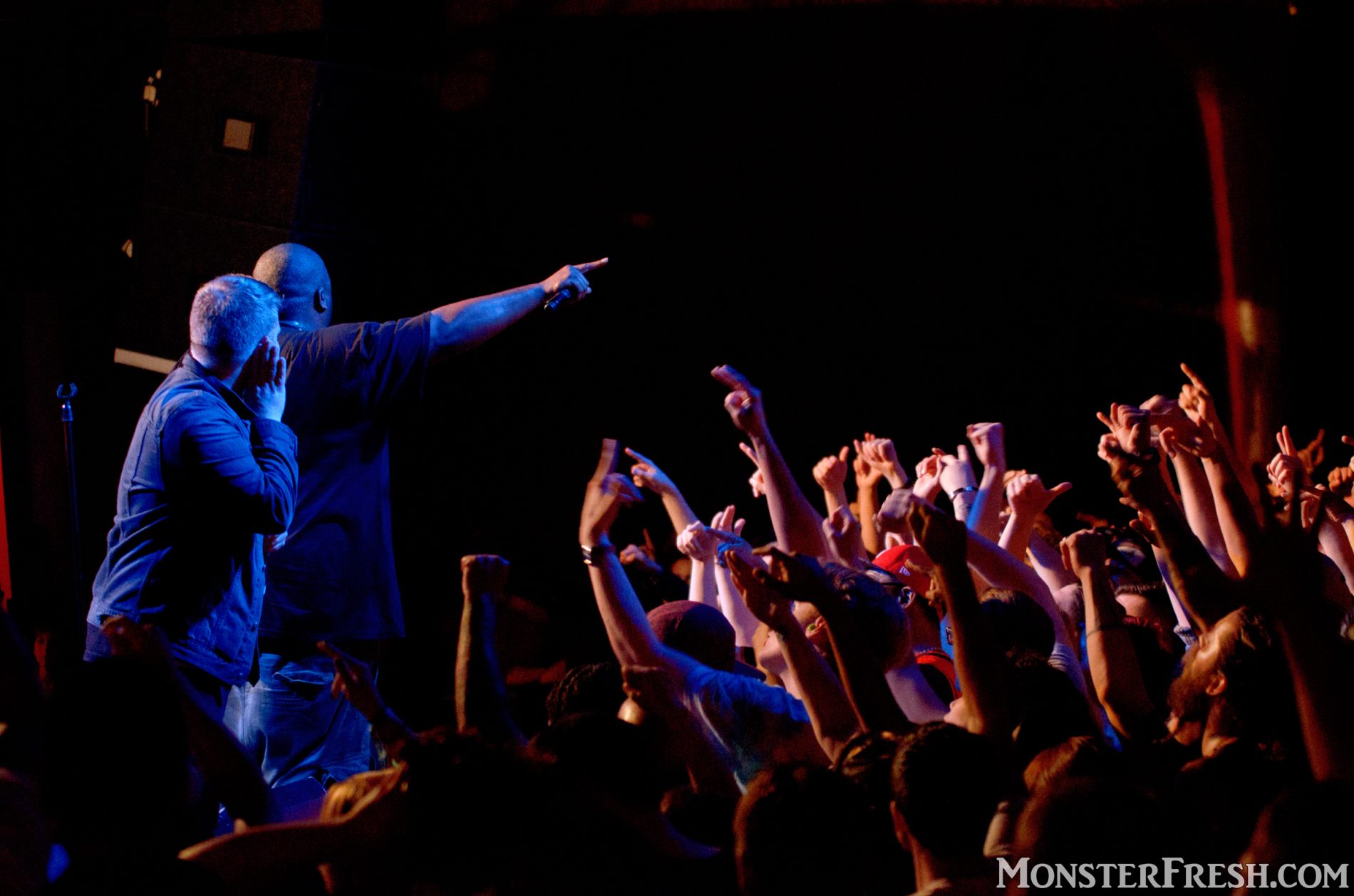
EL-P addressed the phenomenon by thanking the fans for “taking this little album [they] made for fun” and responding so favorably to it, giving it the life that it now possessed. The truth is that the nature of the production and level of expectation that he and Mike initially had when entering into the project has functioned as much less of an obstacle blocking potential success to become the main ingredient that has fueled it.
From Company Flow‘s game-changing debut, Funcrusher Plus (1997) through his first 2 solo releases on Def Jux — Fantastic Damage (2002) and I’ll Sleep When You’re Dead (2007) — and finally Cancer 4 Cure (2012), Meline established a pattern of taking approximately 5 years between pushing out his next official studio release, like clockwork. These delays weren’t planned, but when you listen to any one of these albums, it’s clear where that time was invested; they are all impeccably crafted, multi-layered and innovative masterworks. Equal care was put into his production work for Mike on R.A.P. music. When you’ve been in the game as long as these two have, while maintaining a respect for quality lyricism, and personal expectations of oneself to consistently contribute something to the progression of the art form, it only makes sense that one would approach each new release as a representation of their next artistic statement, establishing the next phase in their legacies. EL is a perfectionist and it’s yielded some truly brilliant work for him over the years, but this is not what Run The Jewels is about. It has, however, presented a beautiful new phase in both his and Mike‘s careers, both separately and collectively, regardless — one more emotionally driven than intellectually so.
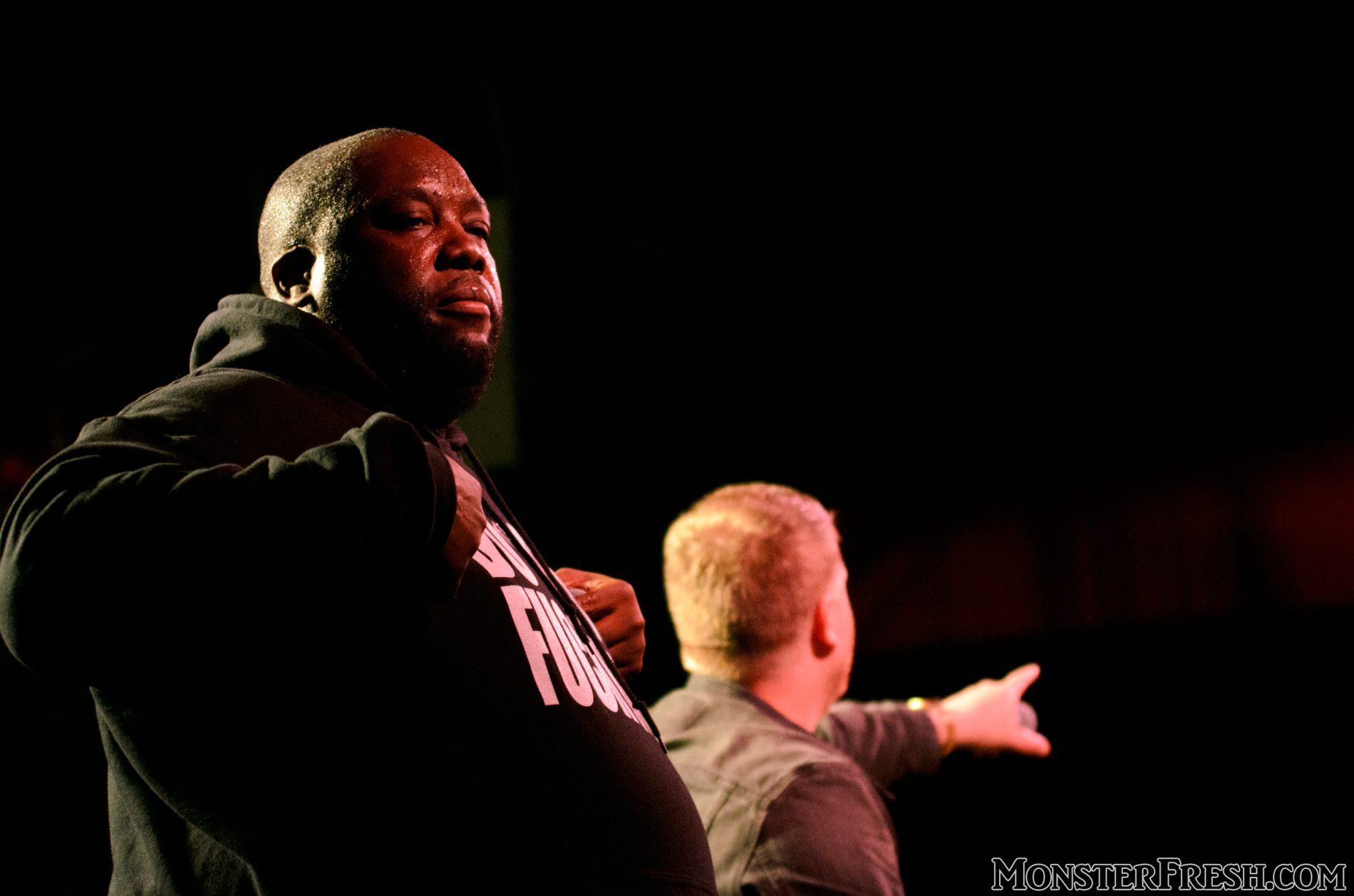
When Producto first linked up with Render, he was dead in the middle of trying to produce C4C for himself. He agreed to work on a single track for the Atlanta rapper, but Mike liked what he heard so much and they connected so well that he became set on having the Brooklyn producer handle his entire album, something that Meline flat out refused to agree to initially. After running Def Jux for a decade, producing, releasing, and promoting the work of so many others, EL-P made the decision to put the brakes on his label in 2010 with an intention to focus on just being an artist himself again. Bigga’s proposal had the potential to derail that plan. A fellow student of the game, Mike was drawn to the idea of working with only a single producer on his release, something that he’d never had the opportunity to do before in his career, and a formula that is employed less and less regularly in these current times. Eventually, EL discovered that they shared a surprising amount of common interests and perspectives, including an affinity for explosive production work in the vein of the Bomb Squad, featured on such records as Ice Cube‘s post-NWA debut, Amerikkka’s Most Wanted. Approaching R.A.P. Music with that in mind, EL cooked that influence down to it’s essence and injected it into something entirely new. In the end, their new found friendship, and Mike‘s energy in particular, actually provided Meline with a vital second wind motivating him to finish his own album.
The Run The Jewels project was created in the wake of two deeply lyrical projects with some truly intense subject matter — the highly political R.A.P. Music addressed governmental, social, and racial issues, while C4C touched on everything from domestic violence and war to escapism through self-medication. Employing the aggressive pounding beats used on Mike‘s album while mixing in slightly more of the space-age laser stabs and anti-gravity hydraulic decompressions that EL is often associated with, the pair went straight ham on the lyrical content, taking their boasting, threats, and posturing to beyond cartoonic levels (at one point, Mike raps about shooting a poodle in the head and, in another section, threatens to kick over a child’s fort). Even the name of the group is a reference to instructing someone to strip themselves of their valuables during a stickup, although the clear similarities to the name of another rap “super duo” and the implications of directing artists with that sort of recognition and stature to hand over their crowns, cannot be ignored. Their respective catalogs speak for themselves and with their most recent solo efforts infiltrating the blogosphere at a more visible magnitude than ever, neither EL or Mike have anything to prove, but that doesn’t mean that Run The Jewels doesn’t also consist of some brilliantly crafted work. The cohesion of the two powerhouses is remarkable, never feeling like one is carrying the load more than the other. If anything, the mic operates like a baton passed between the wordsmiths, the challenge between them amplified with each traded verse. This project only solidifies their bond and what they’re capable of as a unit. Plus, there really is something to be said for talking shit and making ridiculous claims on the mic; there’s a different type of creativity being utilized when the necessity to deliver some weighty statement is abandoned for spitting straight fire for the amusement, shock, and enjoyment of one another. It’s a celebration of their friendship as much as anything else, and all of that spills out like a public disembowelment when they perform live together.
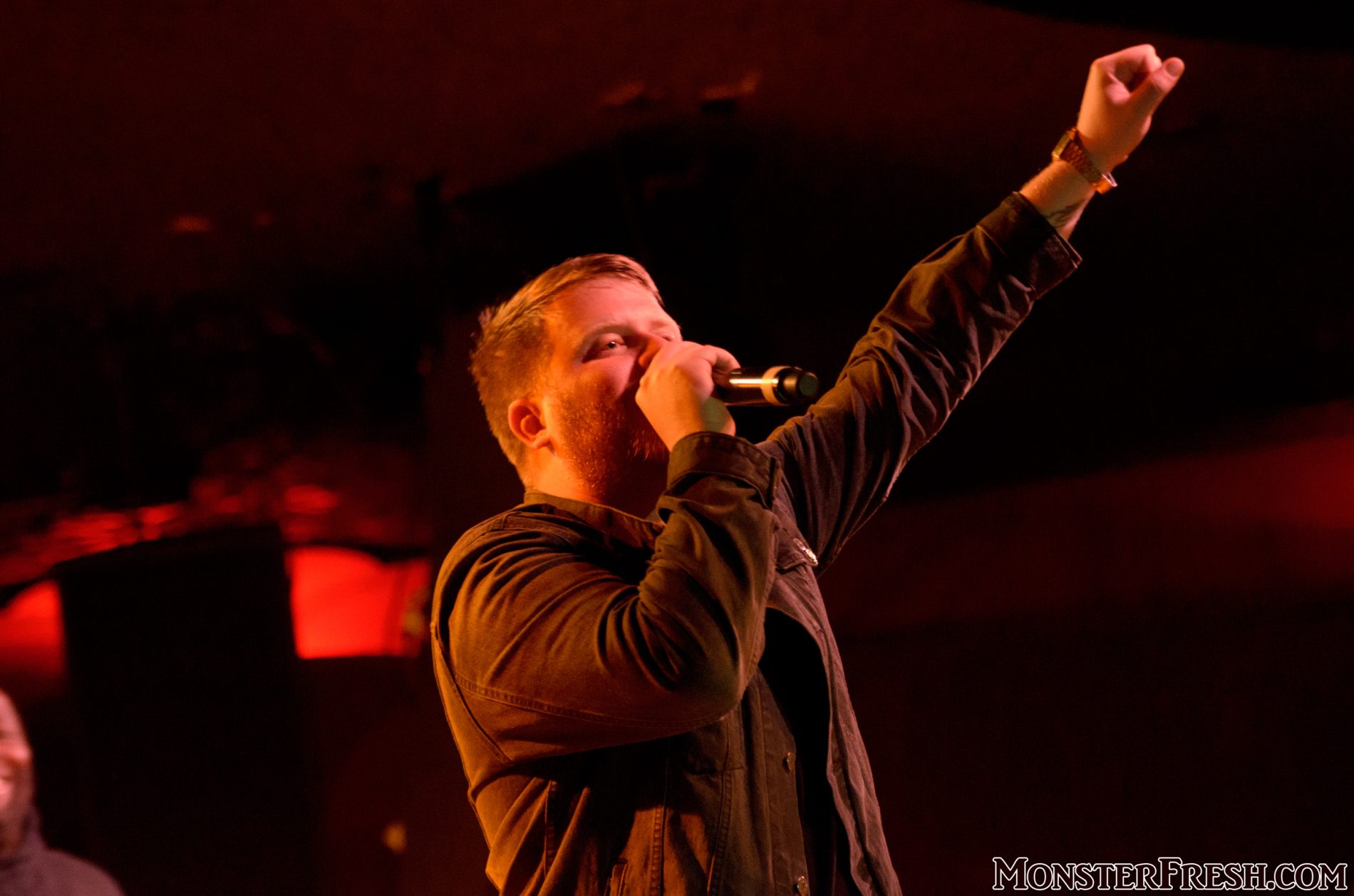
If there is one thing that can be said about the pair it’s that they are a unified duo in every sense of the word. When you take two artists of this caliber and mash them together, the results are very rarely this effective, and even more rarely do they feel this organic. They murdered the album as a team and when they hit the stage, the impression that is exactly what they’ve come to do, is apparent right out of the gate. Run The Jewels pretty much tore through their one and only album while filling the set out slightly with C4C tracks, “The Full Retard” and the Killer Mike-featuring “Tougher Colder” Killer, along with “Untitled” from R.A.P. Music. The favor was returned in the encore, when they broke out “Butane,” the track from Mike‘s album featuring EL‘s cameo. Throughout it all, the emcees were egging each other on with huge smirks plastered across their faces. At one point they even hugged in the middle of the show. At another, the big man demonstrated his surprising agility by breaking into the Dougie.
Back when I interviewed EL-P in May of 2012, only weeks before C4C and R.A.P. Music were both scheduled to hit the shelves, I asked him about the idea of needing to relax after putting so much work into recording these projects, versus having to go out and hit the road to perform them. He responded by saying the following:
“You know, there’s a part of me that would love to just sit at home, smoke weed, and make music forever. But, there’s only 2 things that I’ve really ever enjoyed doing in the music business and one of them was making records, and the other one is going out and playing.”
He seemed a little bit faded when I saw him seated out in front of the venue before the Into the Wild Tour show. I went up and introduced myself, explaining that I had conducted an interview with him a month or two prior. He asked me how it came out and I explained that, although it hadn’t been published yet (it was for a print mag), I thought that it had gone pretty well. Whether it was that he was in an altered state — they admitted to being so on stage later — or simply that he must have done an endless number of these interviews for promotion around that time, my impression was that he probably didn’t even remember who I was or our specific interview at all. Still, as I was about to step away, EL made the effort to look me straight in the eye and say, “Hey. Thank you” with so much sincerity that it risked being uncomfortable. It didn’t matter which interview I had conducted, and maybe it didn’t matter that I conducted one at all, but it felt to me that Meline simply and quite honestly appreciates the support that he receives for his work on all levels and from all directions. His motivations are simple: to create something from a genuine place and to have the opportunity and privilege to share it with others that could draw some personal value from it.
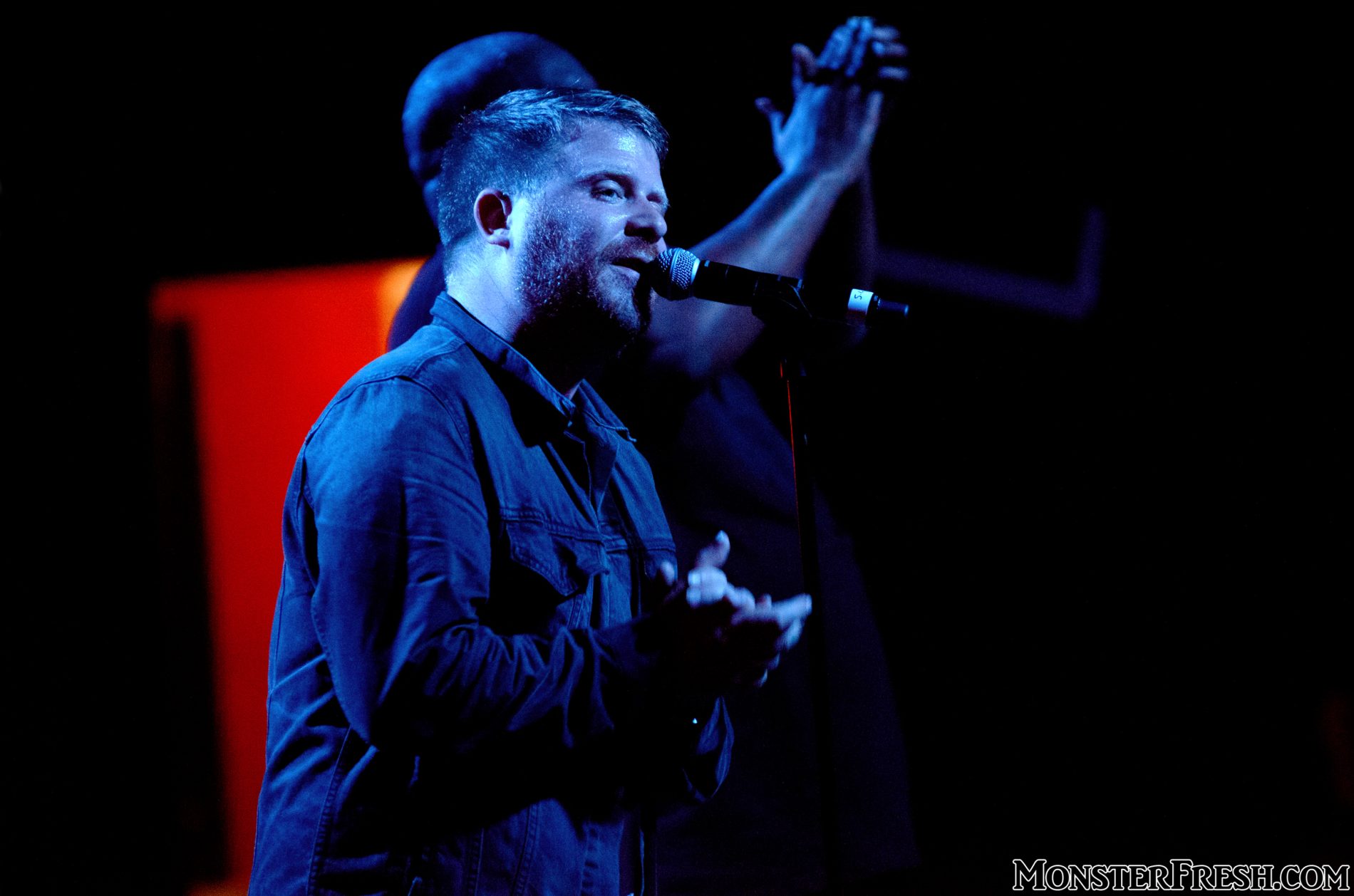
Before leaving the Showbox stage on this night, EL offered the crowd 2 options. The first was for Run The Jewels to simply call it a night, ending the performance on a high note without tarnishing the overall experience with some left-field unrehearsed track that they’d never performed before. The other was the obvious selection: the exact opposite. They claimed to had just finished recording their aptly titled sophomore release, RTJ2, right before flying out to perform for us, and agreed to treat us to a track called “Blockbuster Night Part 1,” which they had recently unveiled an advanced snippet for online. A perfectionist, EL wasn’t entirely satisfied with their less than perfect delivery of this brand new song and his concerns that it would affect the continuity of the evening were somewhat warranted, but that’s only because it gave a glimpse into a new direction for the group, something that didn’t strictly replicate the sound that they’d already established, but rather indicated a progression and something to look forward to.
Back when I asked the rapper/producer about receiving feedback on the tracks that he’s created involving what he believed to be deeply personal subject matter, he spoke of his surprise at discovering how universal our own experiences truly are and how far they can extend beyond these situations that we may believe are unique unto ourselves. Elaborating on this revelation pertaining to connecting with others through his art, he added the following:
“Fuck the audience. Fuck everyone. Fuck everything. Do the thing that’s in your heart. Don’t listen to anything else. Do the thing that really means something to you and you’ll be surprised by how many people you’ll actually be able to communicate with.”
But if there’s one thing that EL said to me that really stands out and epitomizes the way that he and Mike approach the Run The Jewels project even more, it came in response to us discussing the passing of Adam “MCA” Yauch of The Beastie Boys. Along with expressing the sadness that he felt by the loss, he also explained what he valued so much about the legendary rap crew.
“I always had such admiration for the way they just did whatever the fuck they wanted, and they never did anything else, and they always did it for each other. You could tell that they really were just in it to do shit with each other. They didn’t give a shit about fame. I think a lot of people could learn from those guys.”
When Meline opted to effectively shut down Definitive Jux in 2010 by announcing that no new material would be produced through it as a label, I’m sure that plenty of people were disappointed. I, however, was fairly optimistic about the news; EL‘s material was always my favorite stuff on the label anyway, so my hope was that he truly would be able to increase the productivity in his own career as a recording artist without the weight and distractions of having an entire business resting on his shoulders anymore. He’s always created forward thinking, richly textured masterpieces while holed up in the confines of his own mind, but having a trusted partner like Mike to bounce things off changes up his creation process substantially, with the partnership yielding instant feedback and encouragement from each other. It has not only increased the turnaround on his work, but provided it with new life and energy. Don’t get me wrong, I love the dark, dystopian shit, and lyrically, Run The Jewels provides some intense visuals in its own right, but this unique hybrid of aggressively positive energy that Mike and EL are branding is undeniable. I think a lot of people could learn from those guys.